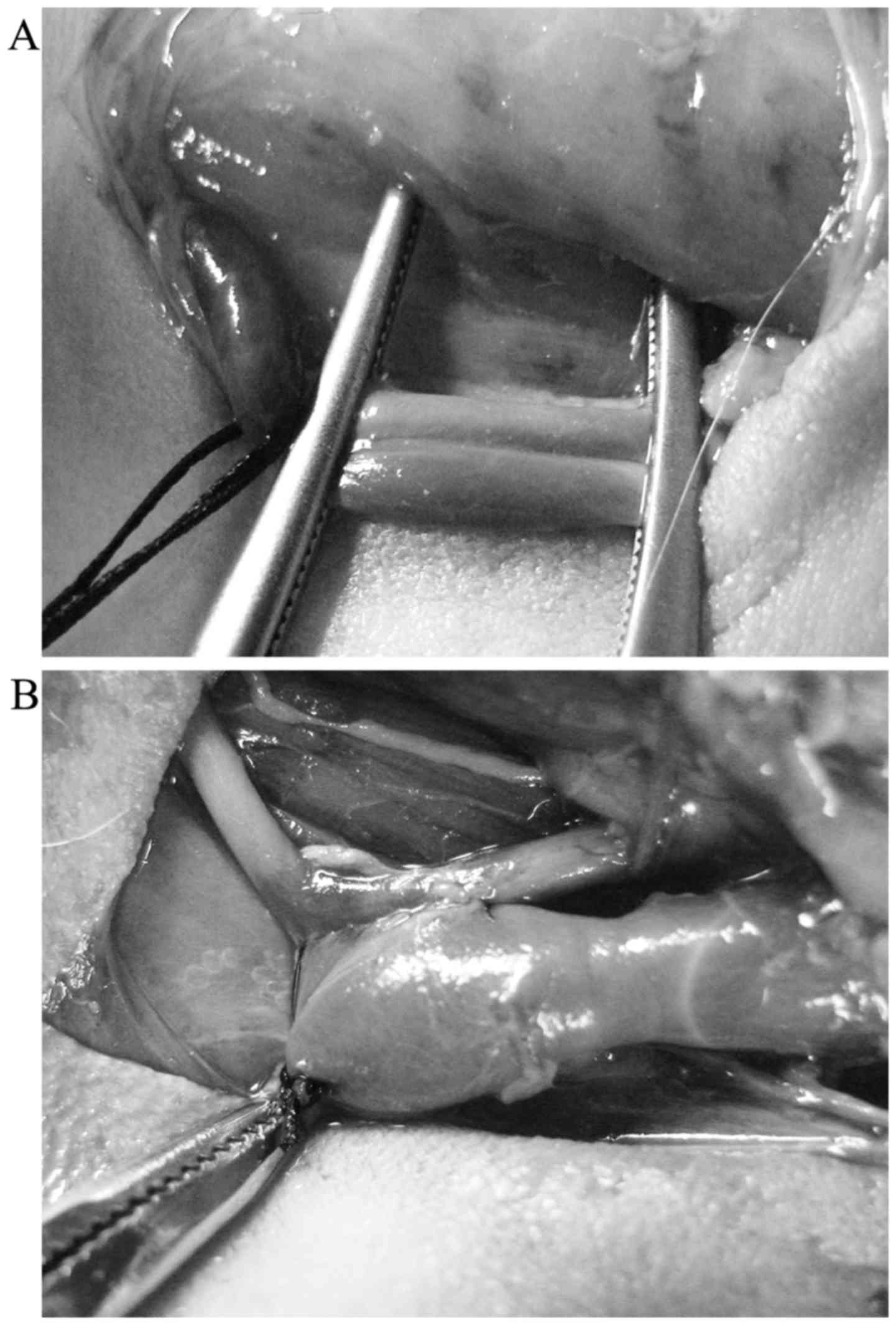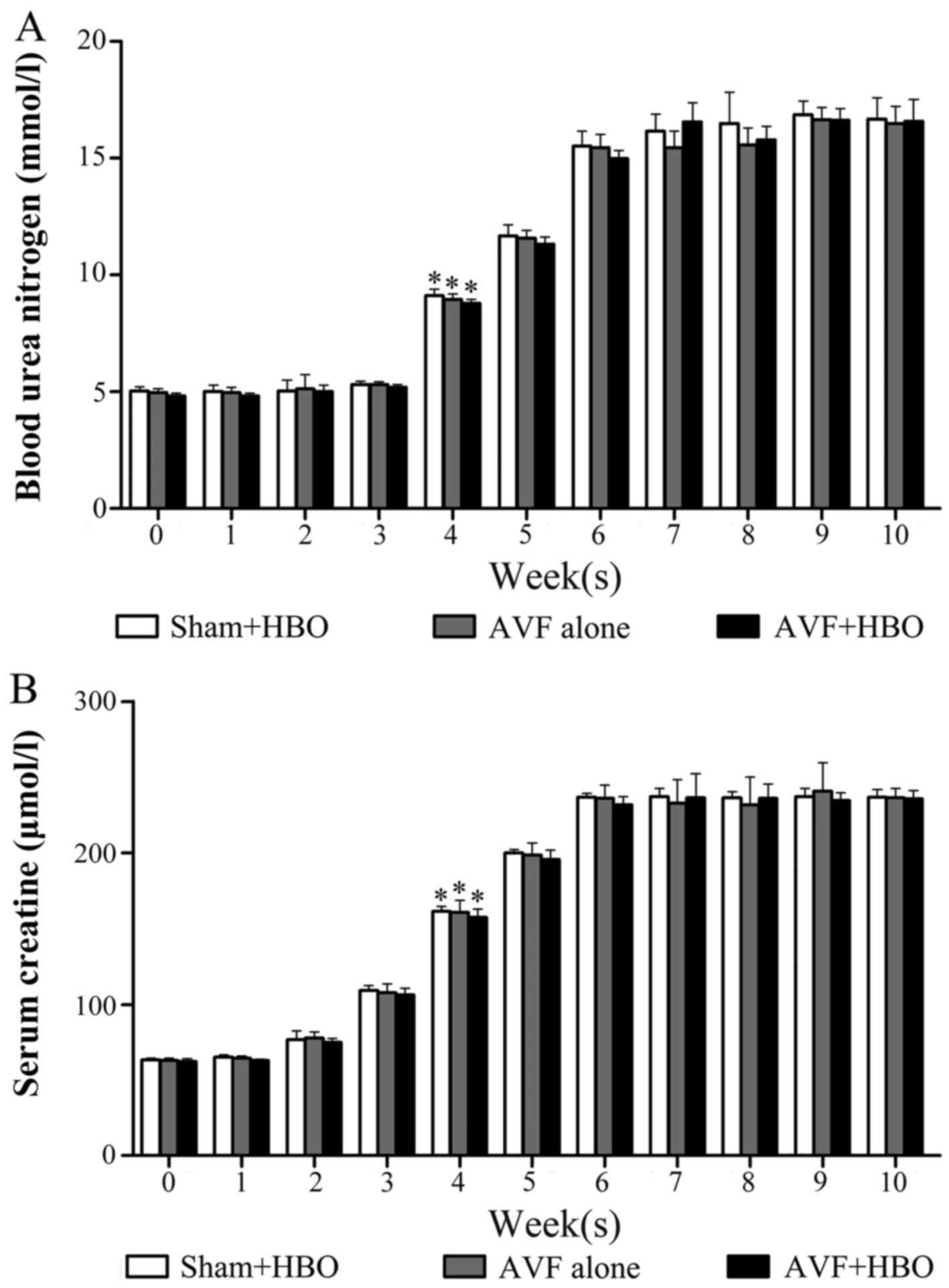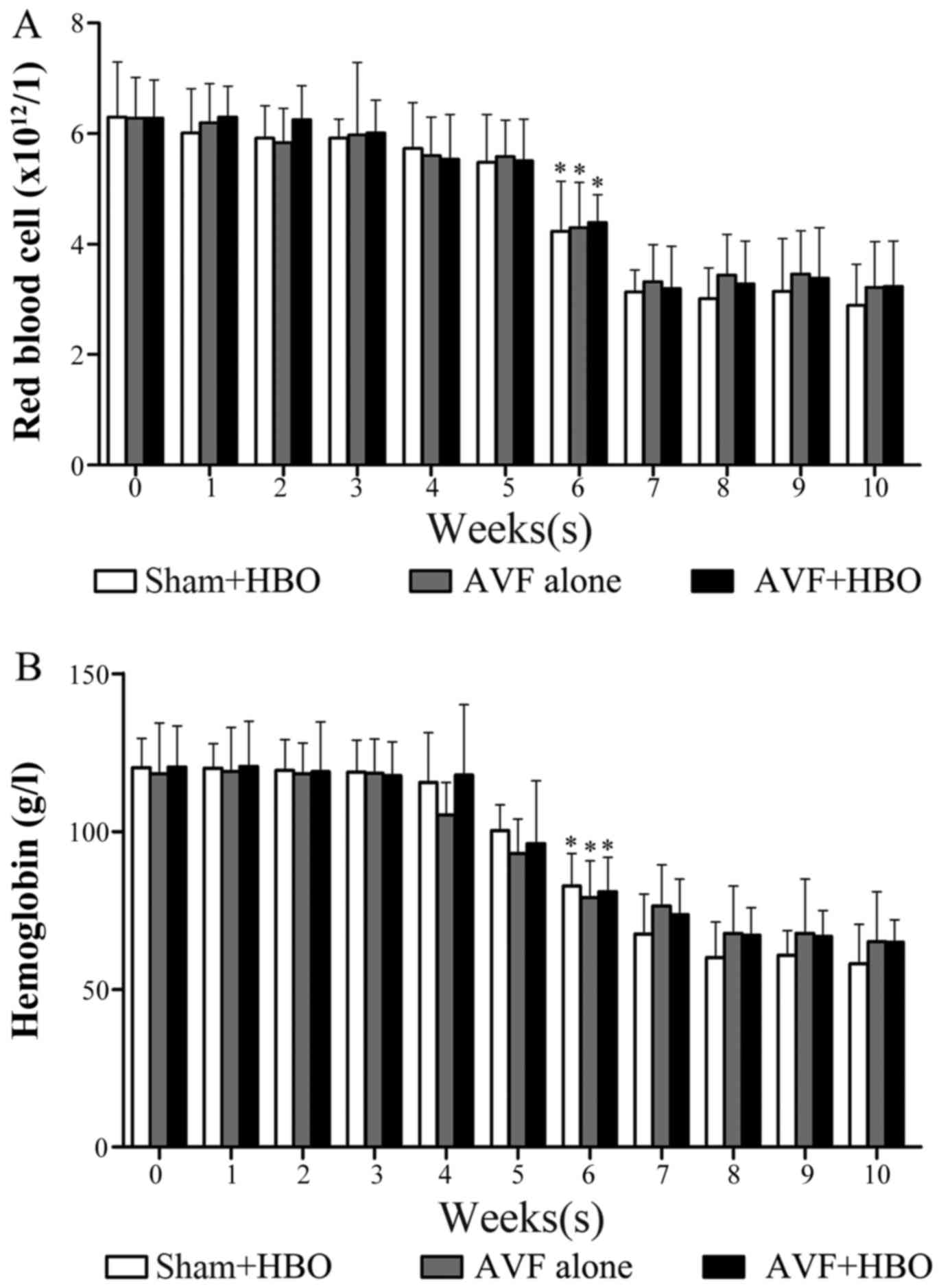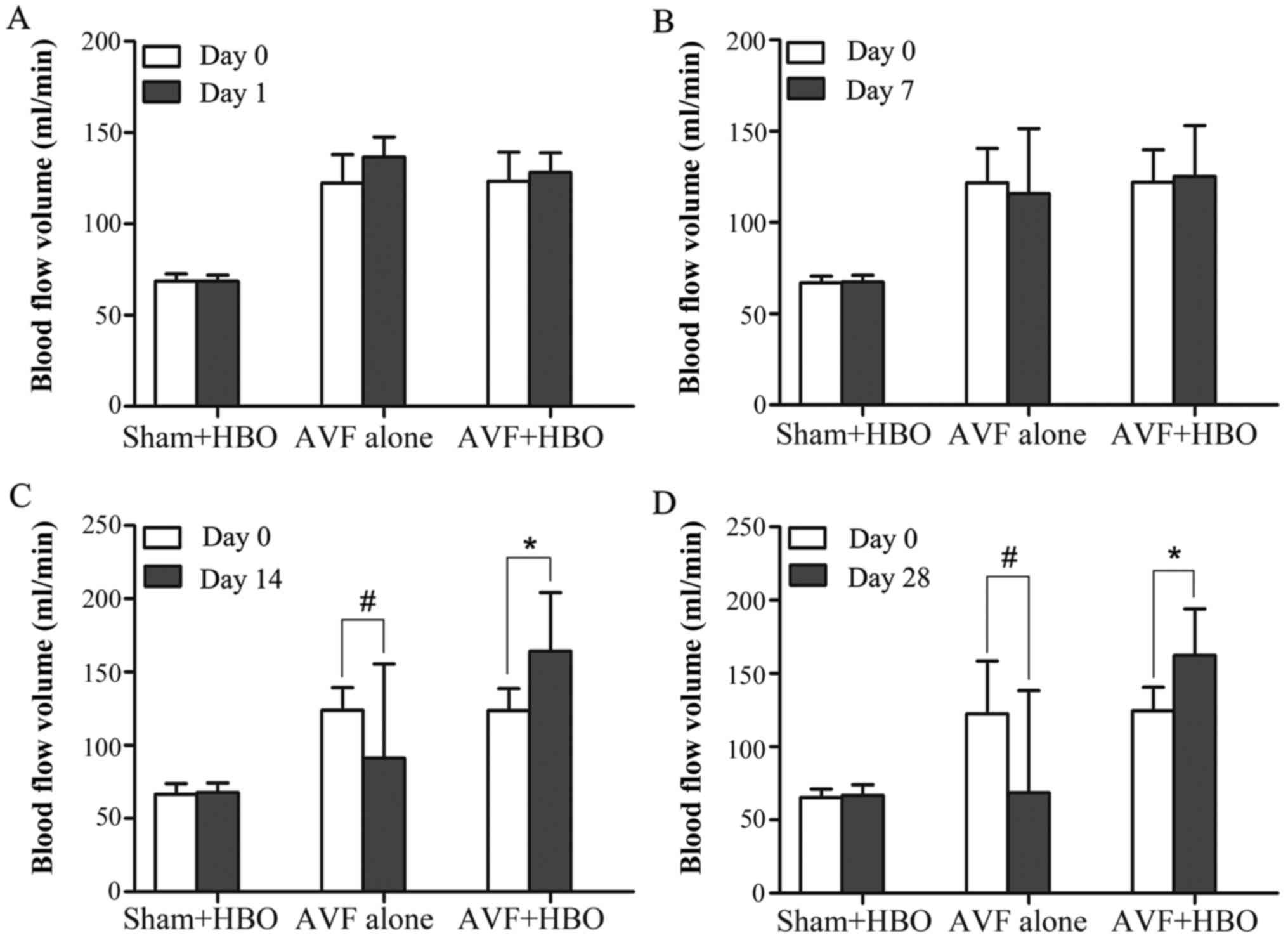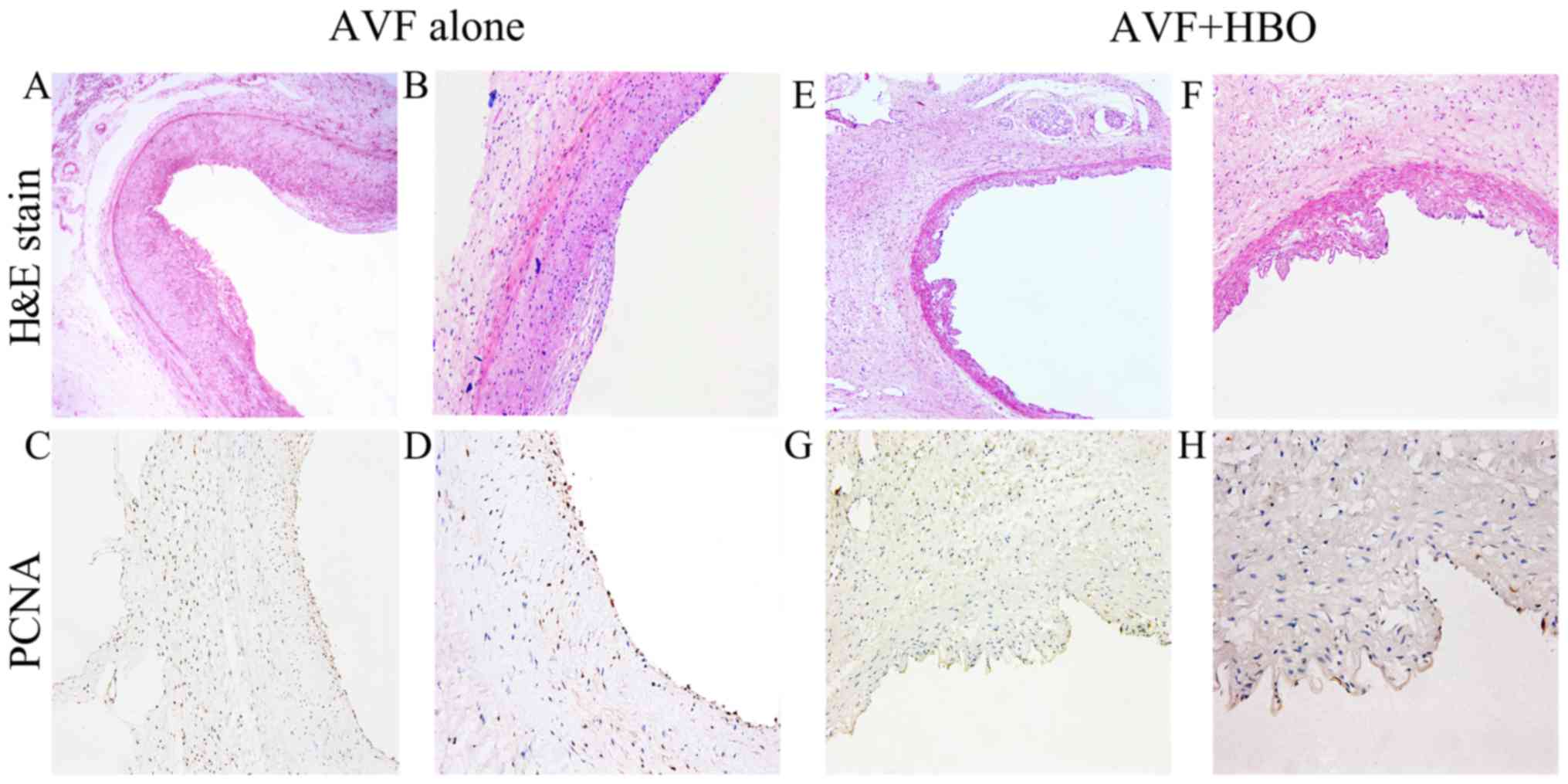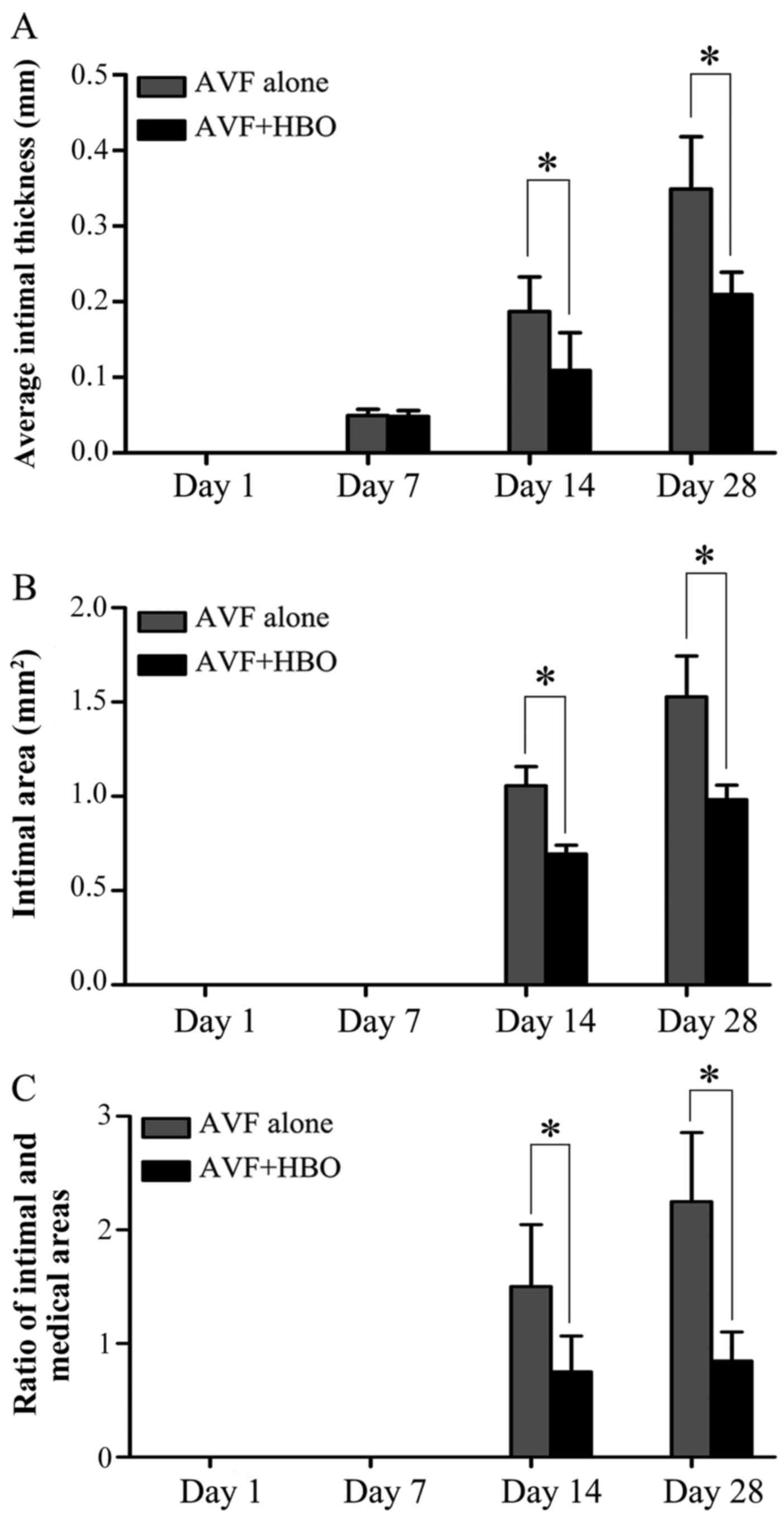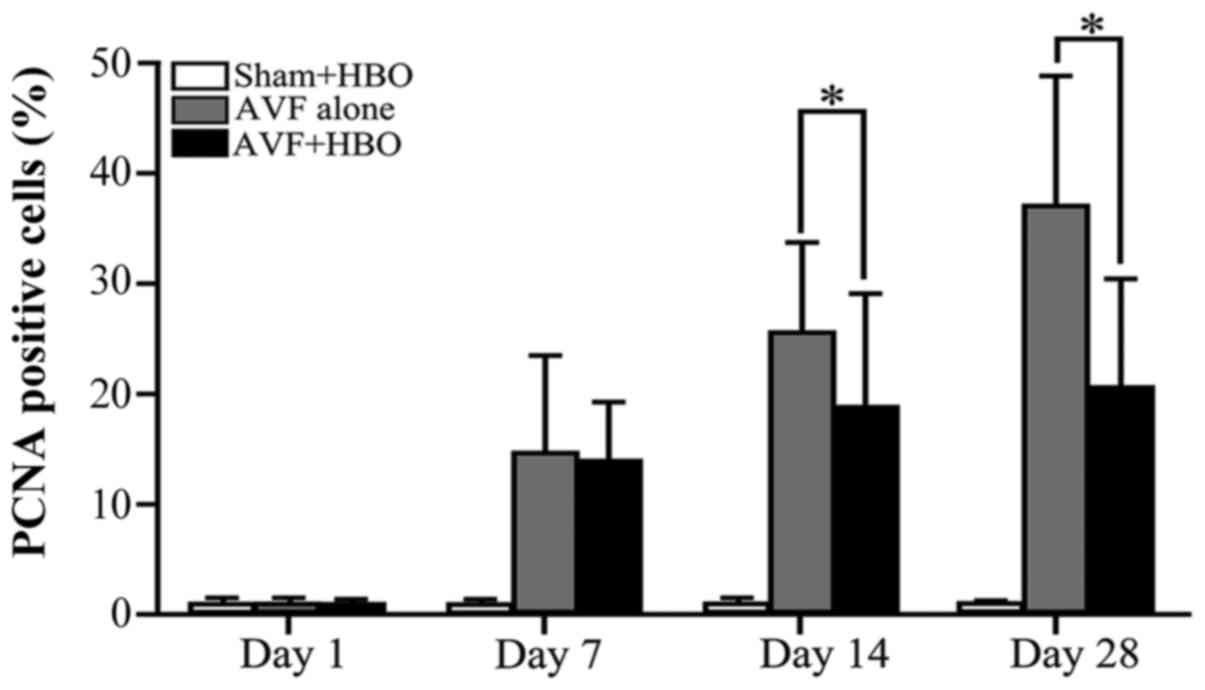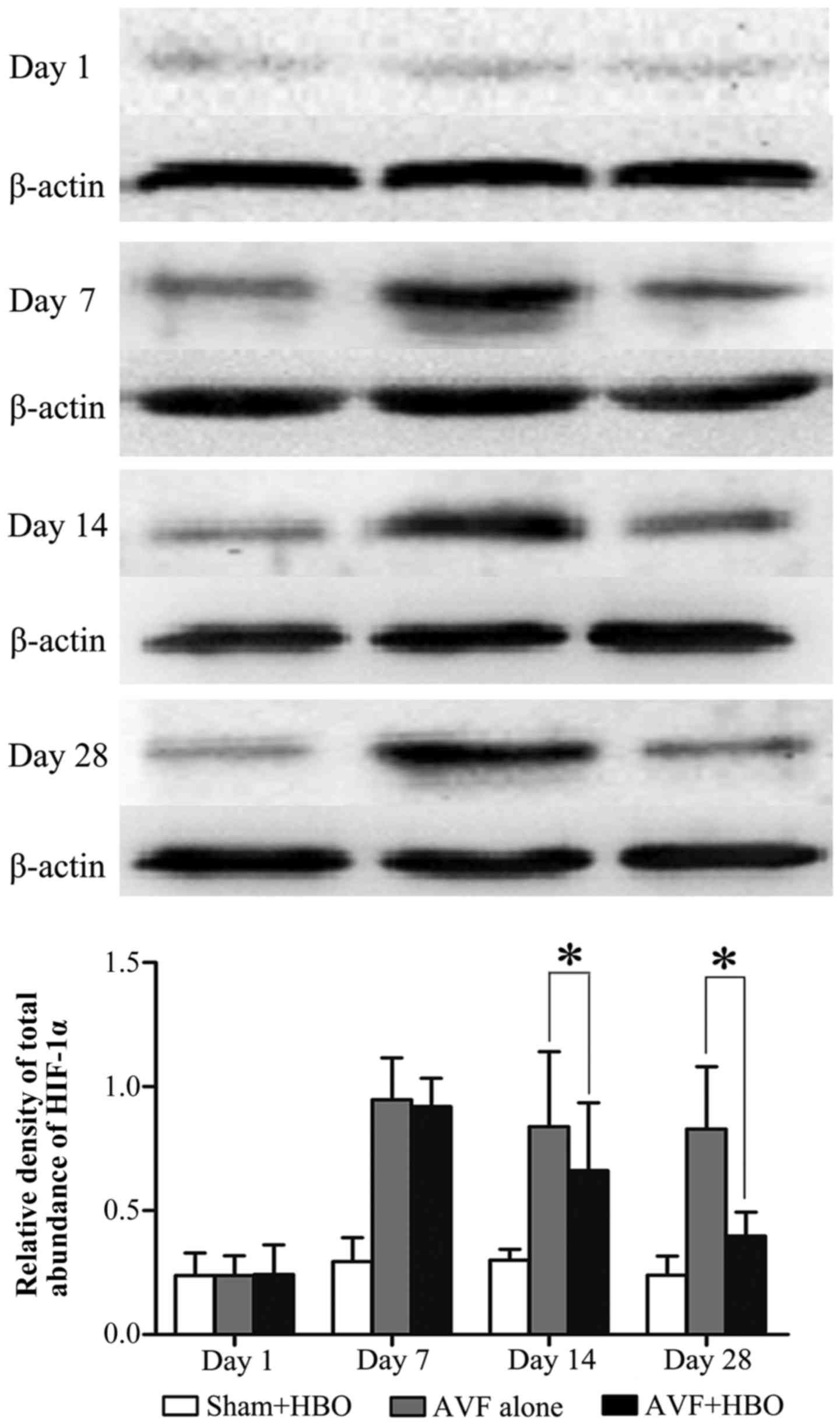|
1
|
Vascular Access Work Group: Clinical
practice guidelines for vascular access. Am J Kidney Dis. 48(Suppl
1): S248–S273. 2006. View Article : Google Scholar : PubMed/NCBI
|
|
2
|
Allon M, Robbin ML, Young CJ, Deierhoi MH,
Goodman J, Hanaway M, Lockhart ME and Litovsky S: Preoperative
venous intimal hyperplasia, postoperative arteriovenous fistula
stenosis, and clinical fistula outcomes. Clin J Am Soc Nephrol.
8:1750–1755. 2013. View Article : Google Scholar : PubMed/NCBI
|
|
3
|
Dember LM, Beck GJ, Allon M, Delmez JA,
Dixon BS, Greenberg A, Himmelfarb J, Vazquez MA, Gassman JJ, Greene
T, et al Dialysis Access Consortium Study Group: Effect of
clopidogrel on early failure of arteriovenous fistulas for
hemodialysis: A randomized controlled trial. JAMA. 299:2164–2171.
2008. View Article : Google Scholar : PubMed/NCBI
|
|
4
|
Asif A, Roy-Chaudhury P and Beathard GA:
Early arteriovenous fistula failure: A logical proposal for when
and how to intervene. Clin J Am Soc Nephrol. 1:332–339. 2006.
View Article : Google Scholar
|
|
5
|
Misra S, Shergill U, Yang B, Janardhanan R
and Misra KD: Increased expression of HIF-1alpha, VEGF-A and its
receptors, MMP-2, TIMP-1, and ADAMTS-1 at the venous stenosis of
arteriovenous fistula in a mouse model with renal insufficiency. J
Vasc Interv Radiol. 21:1255–1261. 2010. View Article : Google Scholar : PubMed/NCBI
|
|
6
|
Misra S, Fu AA, Rajan DK, Juncos LA,
McKusick MA, Bjarnason H and Mukhopadhyay D: Expression of hypoxia
inducible factor-1 alpha, macrophage migration inhibition factor,
matrix metalloproteinase-2 and -9, and their inhibitors in
hemodialysis grafts and arteriovenous fistulas. J Vasc Interv
Radiol. 19:252–259. 2008. View Article : Google Scholar : PubMed/NCBI
|
|
7
|
Semenza GL: Targeting HIF-1 for cancer
therapy. Nat Rev Cancer. 3:721–732. 2003. View Article : Google Scholar : PubMed/NCBI
|
|
8
|
Yang B, Janardhanan R, Vohra P, Greene EL,
Bhattacharya S, Withers S, Roy B, Nieves Torres EC, Mandrekar J,
Leof EB, et al: Adventitial transduction of lentivirus-shRNA-VEGF-A
in arteriovenous fistula reduces venous stenosis formation. Kidney
Int. 85:289–306. 2014. View Article : Google Scholar
|
|
9
|
Wan J, Lata C, Santilli A, Green D, Roy S
and Santilli S: Supplemental oxygen reverses hypoxia-induced smooth
muscle cell proliferation by modulating HIF-alpha and VEGF levels
in a rabbit arteriovenous fistula model. Ann Vasc Surg. 28:725–736.
2014. View Article : Google Scholar
|
|
10
|
Lata C, Green D, Wan J, Roy S and Santilli
SM: The role of short-term oxygen administration in the prevention
of intimal hyperplasia. J Vasc Surg. 58:452–459. 2013. View Article : Google Scholar : PubMed/NCBI
|
|
11
|
Edwards ML: Hyperbaric oxygen therapy.
Part 1: History and principles. J Vet Emerg Crit Care San Antonio.
20:284–288. 2010. View Article : Google Scholar : PubMed/NCBI
|
|
12
|
Shah J: Hyperbaric oxygen therapy. J Am
Col Certif Wound Spec. 2:9–13. 2010.PubMed/NCBI
|
|
13
|
Rits Y, Uzieblo M and Shanley CJ:
Hyperbaric oxygen decreases intimal thickness and area after
carotid artery balloon injury in a rat model. Ann Vasc Surg.
27:785–790. 2013. View Article : Google Scholar : PubMed/NCBI
|
|
14
|
Sharifi M, Fares W, Abdel-Karim I, Koch
JM, Sopko J and Adler D; Hyperbaric Oxygen Therapy in Percutaneous
Coronary Interventions Investigators: Usefulness of hyperbaric
oxygen therapy to inhibit restenosis after percutaneous coronary
intervention for acute myocardial infarction or unstable angina
pectoris. Am J Cardiol. 93:1533–1535. 2004. View Article : Google Scholar : PubMed/NCBI
|
|
15
|
Ducoux M, Urbach S, Baldacci G, Hübscher
U, Koundrioukoff S, Christensen J and Hughes P: Mediation of
proliferating cell nuclear antigen (PCNA)-dependent DNA replication
through a conserved p21(Cip1)-like PCNA-binding motif present in
the third subunit of human DNA polymerase delta. J Biol Chem.
276:49258–49266. 2001. View Article : Google Scholar : PubMed/NCBI
|
|
16
|
Janardhanan R, Yang B, Vohra P, Roy B,
Withers S, Bhattacharya S, Mandrekar J, Kong H, Leof EB,
Mukhopadhyay D, et al: Simvastatin reduces venous stenosis
formation in a murine hemodialysis vascular access model. Kidney
Int. 84:338–352. 2013. View Article : Google Scholar : PubMed/NCBI
|
|
17
|
Sun S, Beitler JJ, Ohki T, Calderon TM,
Schechner R, Yaparpalvi R, Berman JW, Tellis VA and Greenstein SM:
Inhibitory effect of brachytherapy on intimal hyperplasia in
arteriovenous fistula. J Surg Res. 115:200–208. 2003. View Article : Google Scholar : PubMed/NCBI
|
|
18
|
Nieves Torres EC, Yang B, Roy B,
Janardhanan R, Brahmbhatt A, Leof E, Mukhopadhyay D and Misra S:
Adventitial delivery of lentivirus-shRNA-ADAMTS-1 reduces venous
stenosis formation in arteriovenous fistula. PLoS One.
9:e945102014. View Article : Google Scholar : PubMed/NCBI
|
|
19
|
Lee T and Roy-Chaudhury P: Advances and
new frontiers in the pathophysiology of venous neointimal
hyperplasia and dialysis access stenosis. Adv Chronic Kidney Dis.
16:329–338. 2009. View Article : Google Scholar : PubMed/NCBI
|
|
20
|
Wasse H, Huang R, Naqvi N, Smith E, Wang D
and Husain A: Inflammation, oxidation and venous neointimal
hyperplasia precede vascular injury from AVF creation in CKD
patients. J Vasc Access. 13:168–174. 2012. View Article : Google Scholar :
|
|
21
|
Kokubo T, Ishikawa N, Uchida H, Chasnoff
SE, Xie X, Mathew S, Hruska KA and Choi ET: CKD accelerates
development of neointimal hyperplasia in arteriovenous fistulas. J
Am Soc Nephrol. 20:1236–1245. 2009. View Article : Google Scholar : PubMed/NCBI
|
|
22
|
Semenza GL: Hypoxia-inducible factor 1 and
cardiovascular disease. Annu Rev Physiol. 76:39–56. 2014.
View Article : Google Scholar
|
|
23
|
Santilli SM, Wernsing SE and Lee ES:
Transarterial wall oxygen gradients at a prosthetic vascular graft
to artery anastomosis in the rabbit. J Vasc Surg. 31:1229–1239.
2000. View Article : Google Scholar : PubMed/NCBI
|
|
24
|
Santilli SM, Kronson J and Payne WD: The
effect of hypercholesterolemia on the rabbit transarterial wall
oxygen gradient. Ann Vasc Surg. 12:418–423. 1998. View Article : Google Scholar : PubMed/NCBI
|
|
25
|
Morris ST and Jardine AG: The vascular
endothelium in chronic renal failure. J Nephrol. 13:96–105.
2000.PubMed/NCBI
|
|
26
|
Chanakira A, Dutta R, Charboneau R, Barke
R, Santilli SM and Roy S: Hypoxia differentially regulates arterial
and venous smooth muscle cell proliferation via PDGFR-β and VEGFR-2
expression. Am J Physiol Heart Circ Physiol. 302:H1173–H1184. 2012.
View Article : Google Scholar
|
|
27
|
Schultz K, Fanburg BL and Beasley D:
Hypoxia and hypoxia-inducible factor-1α promote growth
factor-induced proliferation of human vascular smooth muscle cells.
Am J Physiol Heart Circ Physiol. 290:H2528–H2534. 2006. View Article : Google Scholar : PubMed/NCBI
|
|
28
|
Schultz K, Murthy V, Tatro JB and Beasley
D: Prolyl hydroxylase 2 deficiency limits proliferation of vascular
smooth muscle cells by hypoxia-inducible factor-1{alpha}-dependent
mechanisms. Am J Physiol Lung Cell Mol Physiol. 296:L921–L927.
2009. View Article : Google Scholar : PubMed/NCBI
|
|
29
|
Hughes D, Fu AA, Puggioni A, Glockner JF,
Anwer B, McGuire AM, Mukhopadhyay D and Misra S: Adventitial
transplantation of blood outgrowth endothelial cells in porcine
haemodialysis grafts alleviates hypoxia and decreases neointimal
proliferation through a matrix metalloproteinase-9-mediated pathway
- a pilot study. Nephrol Dial Transplant. 24:85–96. 2009.
View Article : Google Scholar
|
|
30
|
Santilli SM, Wernsing SE and Lee ES: The
effect of supplemental oxygen on the transarterial wall oxygen
gradients at a prosthetic vascular graft to artery anastomosis in
the rabbit. Ann Vasc Surg. 15:435–442. 2001. View Article : Google Scholar : PubMed/NCBI
|















